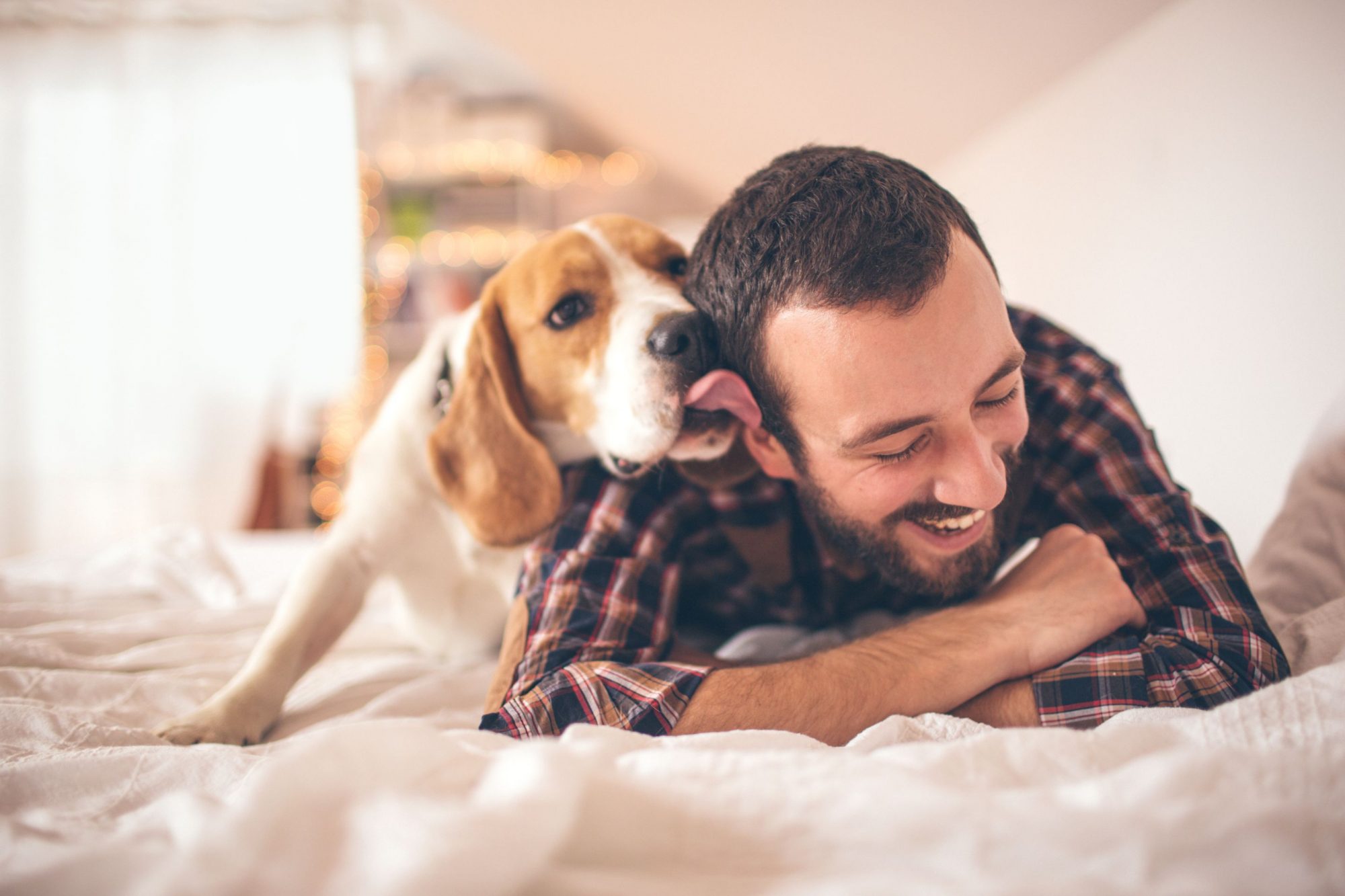
Does your dog howl, chew your shoes, or dig holes in your yard every time you leave the house? Do your cats vomit or stop eating altogether each time you spend a night away? Separation anxiety in pets is no fun for you or your furry friends. The team at Sky Canyon Animal Hospital would like to share ways to understand and solve the common behavioral issues we see in anxious pets.
What Causes Separation Anxiety in Pets?
No one knows the exact reason why some dogs develop separation anxiety and others don’t. However, the ASPCA notes that there have been countless cases of separation anxiety in adopted dogs. And most pet parents remember how much their puppy or kitten howled, yowled, and chewed when they were first brought home. Those first weeks or months in a new home are tough for our furry family members!
Put simply, animals are a lot like people. They develop attachments to those who care for them. When that person changes more than once or twice, they experience psychological distress.
Our more sensitive pets can experience separation anxiety even after they’ve been ours for years. Things like a new baby in the family, a move to a new house, or the death of a family member can trigger separation anxiety in pets.
Signs of Separation Anxiety in Cats and Dogs
While chewing, digging, random vomiting, and yowling are common signs of separation anxiety in pets, keep an eye out for:
- Dog or cat poop in random, unexpected areas of the house
- Signs that your dog pooped and (ew!) ate it—this is called coprophagia
- Pacing, which you can observe through an in-home camera or by looking for paw marks on your floors or carpets
- Chronic escaping or attempting to escape from the house or yard, often resulting in injuries to the teeth or paws
- Incessant barking—are your neighbors calling you to complain every day? Take note.
Separation anxiety can occur in pets of any age. They’re also separate from the more common behavioral issues we see in pets, like a puppy who’s not quite house-trained. Or an un-neutered cat who can’t stop spraying your walls. Our team at Sky Canyon Animal Hospital can help you rule out these behaviors if you’re not sure whether or not your pet has separation anxiety.
Treating Separation Anxiety in Pets
Some pets outgrow separation anxiety. Others only learn to tolerate being away from their beloved people. Your goal is to find a solution that works for your cat or dog. For pets with mild separation anxiety, counterconditioning often works well. In counterconditioning, you work to make your absence fun or positive for your pet.
Try filling a Kong with your dog’s favorite treats or a food puzzle with your cat’s favorite canned meal. These activities will keep your furry friend’s mind engaged and deliver a satisfying treat to boot.
Pets with a more severe level of separation anxiety may need a bigger intervention. We’re talking about the pups who try so hard to chew through your windowsill that their teeth break and bleed. These pets may do well with anti-anxiety medication. Others flourish when taken to a doggy daycare every day. Still others benefit from riding along with you to work.
At Sky Canyon Animal Hospital, we’re here to help you and your pet work through any level of separation anxiety. If your dog or cat struggles to let you walk out the door, schedule an appointment to see one of our caring veterinarians. We look forward to meeting you and your precious, anxious, furry family member!

